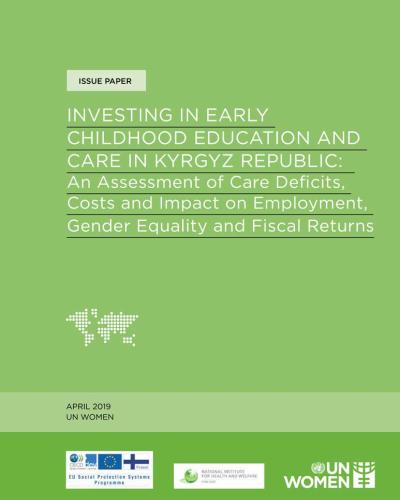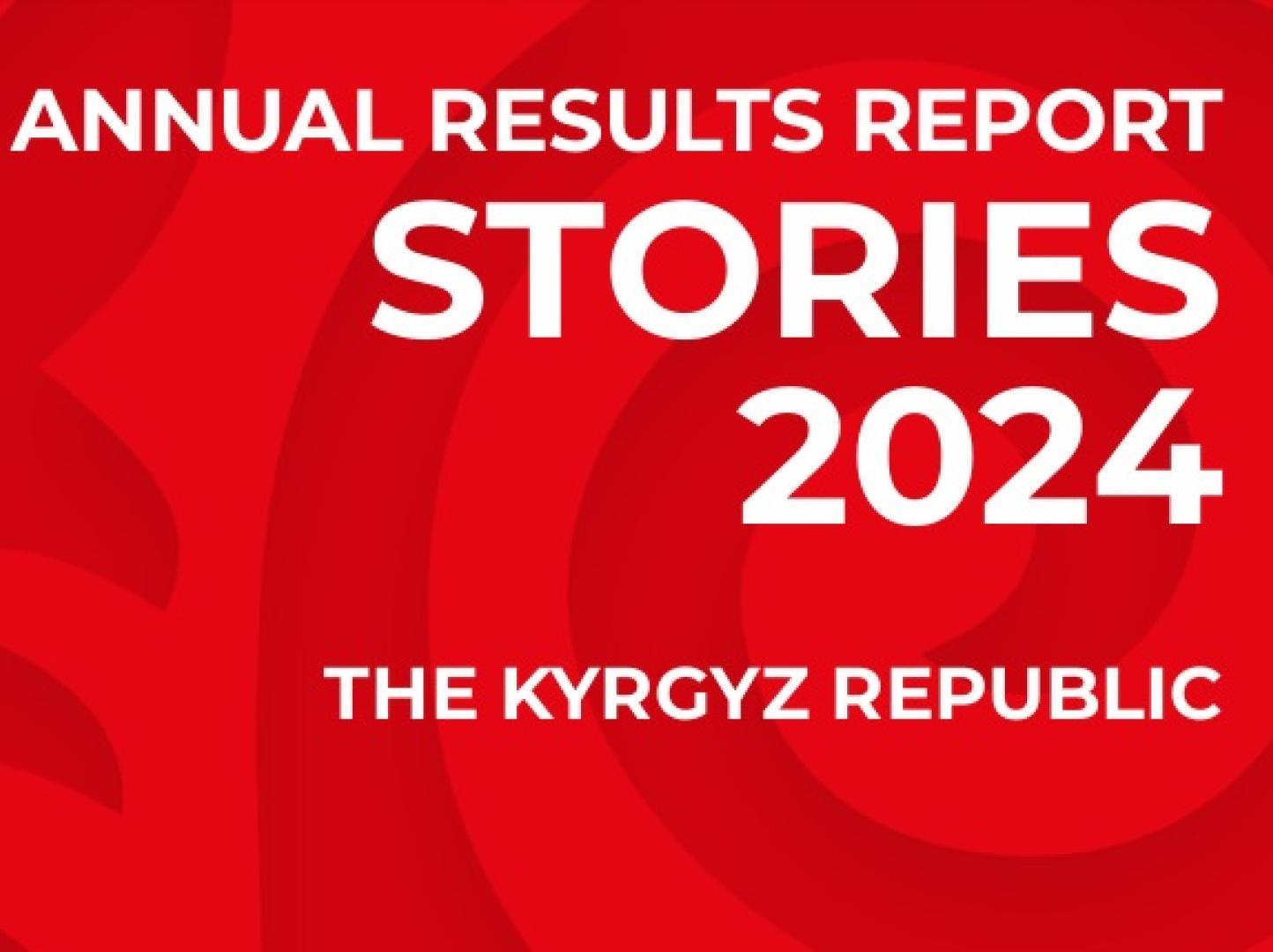Publication
Investing in early childhood education and care in Kyrgyz Republic: An assessment of care deficits, costs and impact on employment, gender equality and fiscal returns
01 April 2019

Access to quality formal services in early childhood education and care (ECEC) plays a crucial role from the perspective of two stakeholders: children as receivers of care and parents as primary providers of care. This study contributes to the policy debate on ECEC expansion in Kyrgyz Republic—particularly from a fiscal policy perspective that focuses on potential short-run economic returns. The report focuses on the following three areas:
- Estimating the running cost of providing universal childcare. Using country-specific data, the methodology generates an estimated cost of providing universal childcare for a typical group-based facility in the public sector, with a mix of ages reflecting the children’s population.
- Estimating the employment effects on women and men. While the provision of childcare is helping meet a need for families, public investments in social care services also have the potential to generate millions of decent jobs, both in the care sector itself and in other sectors through backward linkages; reduce unemployment; and boost labour force participation and growth. Using country-specific data, the methodology generates employment projections for men and women, showing that more than 75 per cent of the jobs will benefit women.
- Estimating the fiscal effects of the jobs created by investing in childcare. Investing in social care infrastructure not only generates decent jobs for women, but also boosts government revenue through an expansion of the tax base, guaranteeing the long-term sustainability of the initial investment.
Published by
UN Women
Published in collaboration with
Organisation for Economic Co-operation and Development (OECD)
National Institute for Health and Welfare (Finland)
Related Resources
Resources
17 April 2025







